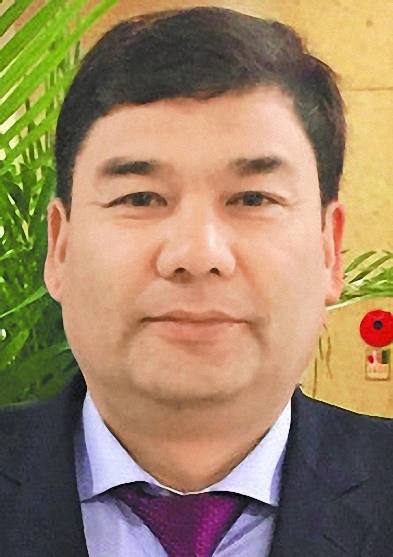Mandarin school helps broaden Uygur horizons
 0 Comment(s)
0 Comment(s) Print
Print E-mail China Daily, December 4, 2018
E-mail China Daily, December 4, 2018
As the first college graduate from his rural hometown in the Xinjiang Uygur autonomous region, Kurban Niyaz realizes the importance of language in communication.

That led him to open a Mandarin primary school there 15 years ago.
By the end of last year, 1,200 students, mainly members of the Uygur ethnic group, had graduated from the school in Qianjin, Wushi county-a State-level poverty-stricken county in Aksu prefecture.
"After traveling to many parts of the country and making friends with people from different places, I'm more aware of the importance of language," he said. "Only if you can communicate with each other, can you truly understand and accept each other."
The 54-year-old Uygur earned a bachelor's degree in Mandarin from Xinjiang University in Urumqi, the regional capital, in 1986. He became a teacher after graduation and later a businessman.
Kurban's family used to run a drugstore in Qianjin, and the lack of education and the superstitious attitude of some customers left a lasting impression on him.
One example was an old woman looking to buy medicine for her granddaughter, whose face was covered with chickenpox sores.
"I recognized the illness, so I told the woman to take her immediately to hospital for proper treatment," he said. "But she scolded me and said my words were nonsense and her granddaughter was envied for her beauty and had been cursed."
After encountering many similar cases, Kurban felt he should do something for his hometown.
"I benefited from education, which gave me a decent job, and my Mandarin skill gave me easier and broader access to see this country," he said. "Many people in my hometown had never been out of Wushi county and some hadn't left the town. They didn't know the world outside."
Kurban said over 90 percent of the town's population were Uygur and hardly anyone could speak Mandarin in 2000.
In 2003, he used his savings-300,000 yuan ($43,500)-to start a primary school and a kindergarten to teach young children basic Mandarin. The teachers are all members of the Han ethnic group.
To recruit students, Kurban and a teacher went door-to-door to impress upon villagers the importance of learning Mandarin. About 80 students of kindergarten age enrolled.
Teachers use language and physical actions to help children understand the meaning of each word. For example, when learning the word "sit", one teacher will lead the child in reading aloud, and another teacher will repeat the action of sitting.
Musa Turhun, one of the first students, was admitted to Tsinghua University in 2016, and many other former students are studying at universities in big cities such as Shanghai and Tianjin.
Traditional Chinese paintings now hang on the school's classroom walls, and the pupils perform Peking Opera in the playground during breaks between lessons.
"My faith in promoting Mandarin has never been shaken, because I firmly believe language skills can help the kids live a better life," Kurban said.






Go to Forum >>0 Comment(s)